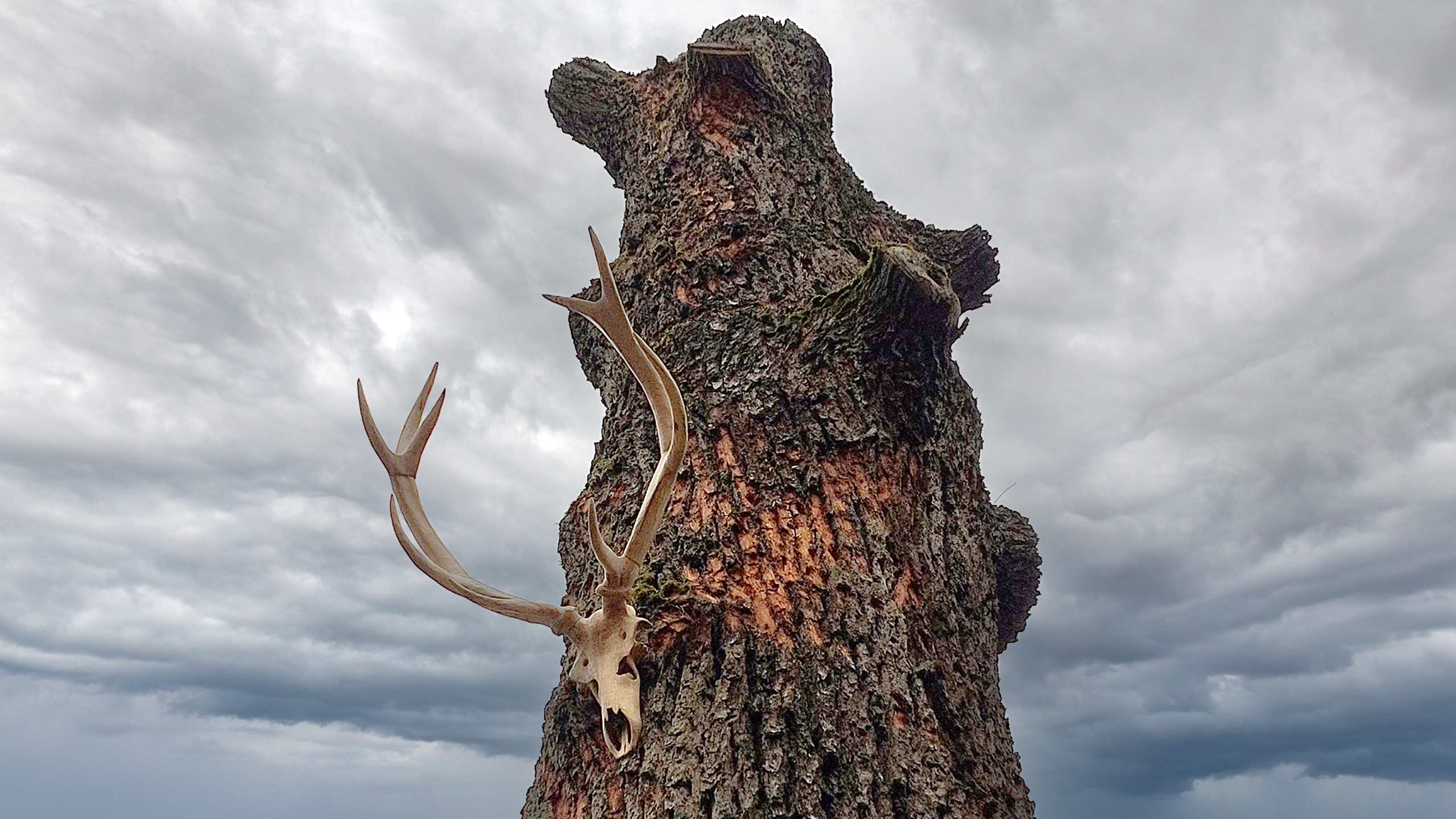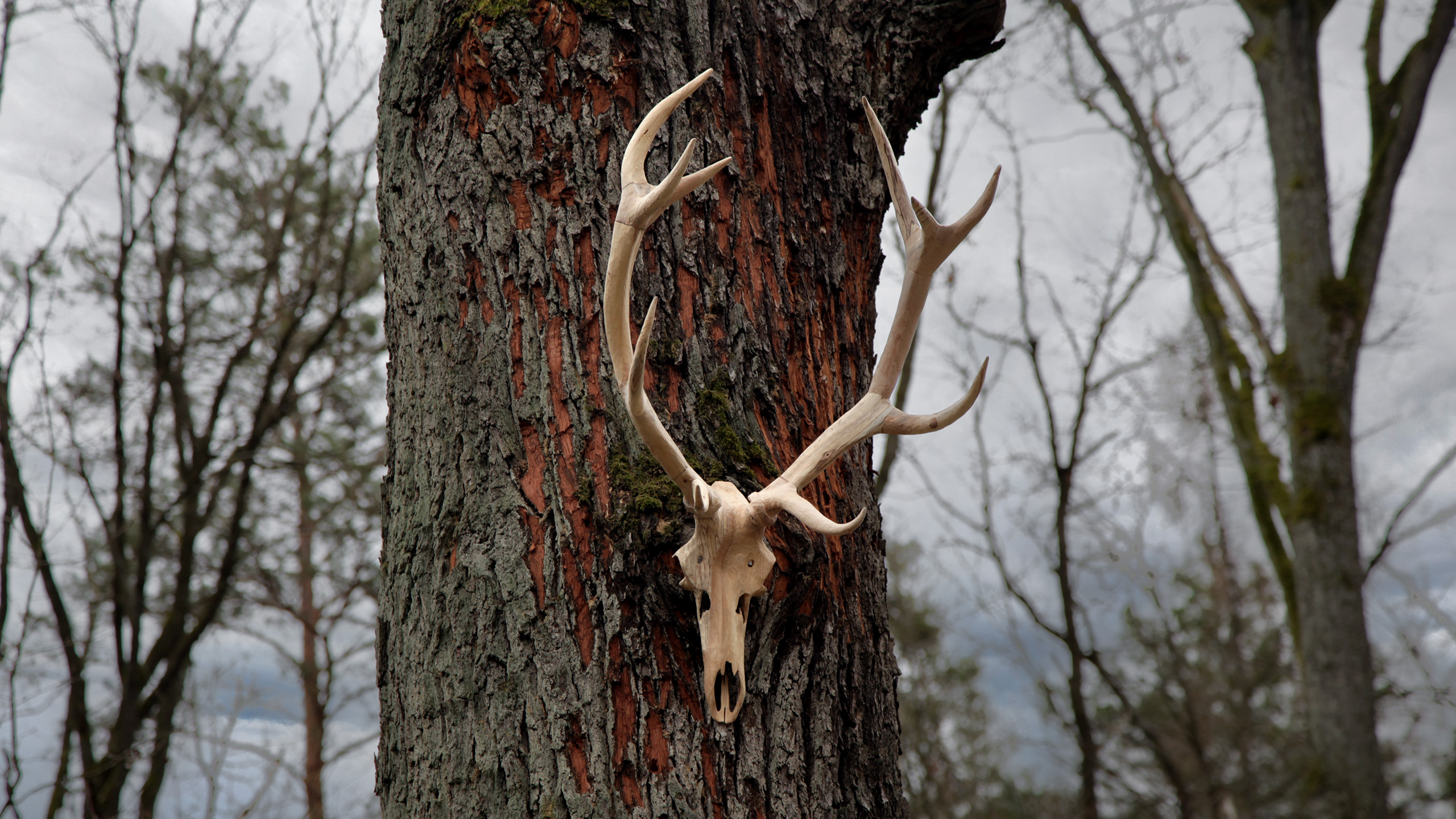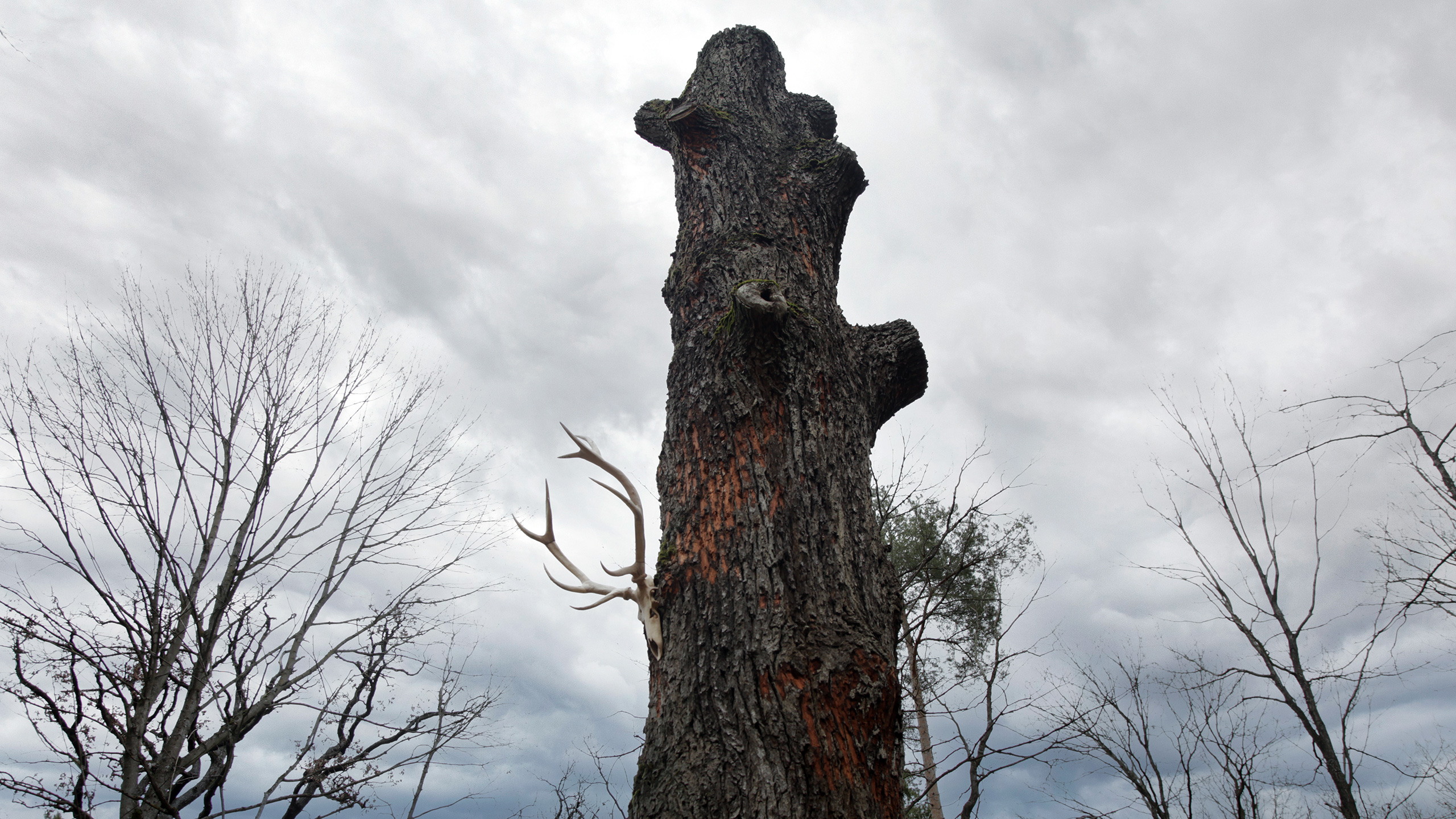(German for ‘To the Green Forest’) focused on the origin of the Grunewald Forest in Berlin, whose name derived from the nearby castle (Zum grünen Wald), a hunting lodge that was built for the royal family in the 16th century. Hunting still takes place today, although no longer in plain sight, as diverse activist groups have condemned the killing of wild animals by Berlin’s forestry department. In their defense, the department claims that it merely regulates overpopulation to avert further damage to the forest. To prevent negative publicity, hunters are not allowed to photograph the shot animals or display them as trophies in any way. As overpopulation is controlled, the real threat comes from the rapidly changing climate, as the once so ‘green forest’ suffers from desiccation, causing large-scale tree dieback. During several weeks in the autumn, I have worked on site to carve a deer antler from wood from fallen trees. During the production I have met dozens of passersby who shared their concerns on the dying forest. The conversations were written down and used for an audio recording that was presented together with the finished sculpture in the middle of the forest.
Some excerpts from the interviews
“You do notice the change in climate a little bit, don’t you? It’s a day in November today, but it feels like a day in September. And here in front this lake has dried up, that one there, there’s no water and nothing in it anymore, and yes, generally you notice it overall in all the vegetation. I have a garden for example, there are large conifers that completely dried up, nothing more, although these are old trees, nothing to do, already dead. And in central Germany it is even worse, 200 km south of here in Erzgebirge for example. There are forests and they are dead, whole forests.”
———
“We are definitely worried and you can definitely see the changes. Fewer insects, species dying. You don’t even have to be an expert for that anymore, you can see it everywhere. Just walking through the forest and then noticing how everything cracks, and these forest fires always, yes of course. And not so many mushrooms anymore, because they just need wetter conditions. You notice it in everything, yes.”
———
“I studied climate change management, so my degree was in sustainable development. I’m originally from Pakistan, and the recent floods were terrible. Countries that are not even major emitters of carbon are struggling with the real problems. In Pakistan, there are a lot of glaciers in the north, and when they melt, the whole country is under water. And they are already melting. In the last floods, 30 million people were displaced. They lost their homes and everything. Thirty million is a lot. Can you imagine that almost a third of the population of Germany is without a house?”
———
“I grew up in rural Bavaria and back then there were always bugs and other insects everywhere on the ground. And now, when I’m with my mother again, you hardly see any insect. There used to be more earthworms for example, they were everywhere in the village, now hardly anymore.”
———
“The trees are not so resistant to pests anymore, for example bark beetles. In the Harz Mountains near Halle, you can see that well, there are quite a lot of problems. The human interpretation is always: “Oh, the forest is completely destroyed by the pests”, but no! The forest is destroyed because of our own actions. So, the beetles come and they clean up, so new trees can grow again. How can one be so stupid? This has been told for decades: “The invasive species in the forest”, as if that was a problem, but no, we are the problem, we are the invasive species !”
———
“I don’t know where it was, in Köpenick, I think. There’s a lake and a waterslide. And now, the slide doesn’t come into the water anymore. You just fall on the sand because the water has receded so much.”


